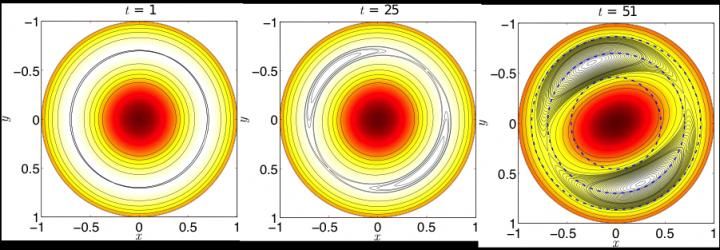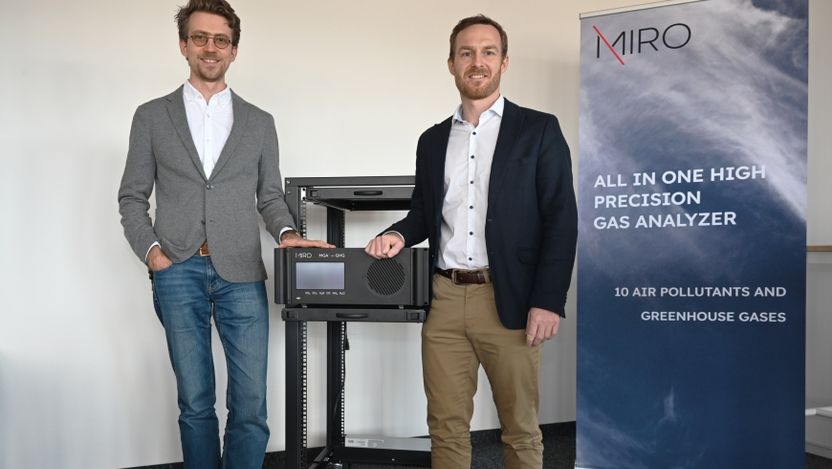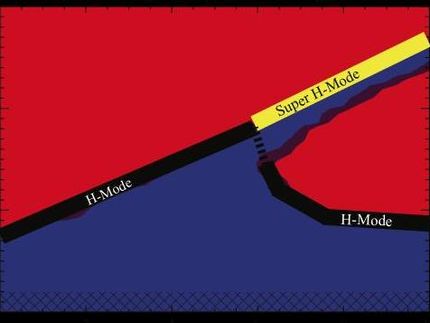Explaining a mysterious barrier to fusion known as the 'density limit'
Advertisement
For more than 50 years physicists have puzzled over a daunting mystery: Why do tokamak plasmas spiral apart when reaching a certain maximum density and halt fusion reactions? This "density limit" serves as a barrier that prevents tokamaks from operating at peak efficiency, and understanding what sets this maximum density would speed the development of fusion as a safe, clean and abundant energy source.

Visualization of a magnetic island growing in a tokamak plasma.
Courtesy of Qian Teng
Recently, researchers at the U.S. Department of Energy's Princeton Plasma Physics Laboratory (PPPL) have revisited an old idea: bubbles called magnetic islands that form in the confining magnetic field produce the observed density limit. The PPPL team, led by David Gates with Roscoe White, Luis Delgado-Aparicio and Dylan Brennan, found new physics overturning decades of thought on the growth of these bubbles.
The new PPPL research locates this physics in the process by which the islands are cooled by impurities that stray plasma particles kick up from the walls of the tokamak. Countering this cooling is heating that researchers pump into the plasma. But the scientists found that even a tiny bit of net cooling in the interior of the islands can cause them to grow exponentially, leading to disruption of the crucial current that runs through the plasma and completes the magnetic field that holds the hot gas together.
If confirmed by experiment the findings could lead to steps to overcome the barrier, also known as the "Greenwald limit" after Massachusetts Institute of Technology physicist Martin Greenwald, who derived an empirical rule for it. The PPPL model quantitatively reproduces the empirical Greenwald density limit.
Still to come are explorations of effects such as turbulent transport of particles, heat and the impurities that lead to plasma cooling. Examining these conditions should provide further evidence that the local power balance inside an island can serve as a very accurate prediction of the density limit.
Other news from the department science

Get the chemical industry in your inbox
By submitting this form you agree that LUMITOS AG will send you the newsletter(s) selected above by email. Your data will not be passed on to third parties. Your data will be stored and processed in accordance with our data protection regulations. LUMITOS may contact you by email for the purpose of advertising or market and opinion surveys. You can revoke your consent at any time without giving reasons to LUMITOS AG, Ernst-Augustin-Str. 2, 12489 Berlin, Germany or by e-mail at revoke@lumitos.com with effect for the future. In addition, each email contains a link to unsubscribe from the corresponding newsletter.
Most read news
More news from our other portals
Last viewed contents
Vesuvianite
Silicate_minerals
Spessartine
Next generation of 2D materials

A single instrument determines a total of ten greenhouse gases and air pollutants simultaneously and with high precision - "Innosuisse Certificate" for Empa Spin-off: Ready for sustainable growth
PiHKAL
Rubella
Fusafungine

Support for carbon pricing higher than expected - Study shows that a majority of Germans would be willing to accept carbon pricing in return for a direct climate premium























































